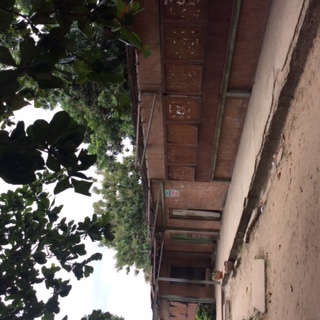Education in Nigeria: Changing The Narrative Through Uniform Standards
- Oluseyi Mafolabomi
- Jul 16, 2018
- 3 min read
Updated: May 19
Nigeria's education has taken a downward plunge since independence. This is no longer news, and is rather evident in the state of public schools. We are yet to see a serious quest for the revitalisation of the sector by the government. What we have seen over the years is the steady rise of alternative, privately-owned schools that offer to the public what is quite apparently beyond the reach and concern of the government. However, with a definitive approach, the narrative can change through the setting of uniform acceptable standards across all levels of schools.
These private schools continue to overtake government in innovation and infrastructure, two key areas that the public education system has woefully failed in. They continue to attract the interest of the public, and a continued focal shift towards privately-owned schools have all but halted government intervention in the development of the education sector.
This is quite evident in the outrageous decline in budgetary allocations for education at all levels of government since 1999. The present budget has only a meagre 7% allocated to the education sector, far away from the United Nations' recommendation of a minimum of 26% of the national budget. The current allocation is the third lowest in proportion to the budget since 2009.
The lion share of education allocations go to recurring expenditure. This has ensured a near permanent paralysis in infrastructure development, and innovation. Private schools have offered themselves as a veritable alternative, albeit a very expensive one.
A comatose education system, with a consistent retrogression in quality has caused a ripple effect that serves to further deteriorate an already ailing setup. For instance, the quality of teachers continue to fall. And reasonably so, since they are a product of a failing system. They also continue to be less than satisfied, and many do not give their best, unmotivated by risible benefits and emoluments, a trend noticeable even in private schools.
The misfortune of the education sector is the result of a collective failure to set and keep minimum standards in terms of policy development and implementation, in keeping with global developmental trends. Any successful education system must be built on standards, such that a fall beneath the minimum is considered an aberration.
The misconception that public education is free is one thought that must be eroded from the minds of the public. The free education offered to students is to be paid for through the revenue generated by the government, which includes taxes. A simple reason Nigeria has consistent tax-evaders is the fact that taxes paid are not reflected in the society. Public schools are one place for government to truly put taxes to work. Parents who value quality education love to see an education system that works. A solid investment in the education sector will truly benefit revenue generation.
There are simple ways to begin to combat the falling standards.
Basic infrastructure need to be put in place as well. There ought to be a minimum standard for this across all school levels. Teacher to student ratio are good ways to measure classroom specifications for a most rewarding classroom experience. In communities, primary and secondary schools should be built strategically to ensure easy access, with the most basic facilities available equally. The population of a community should play a crucial in determining even the size of the school, its capacity and the number of teachers it can accommodate.
Specialised schools like education and technical schools are only that in name alone. Theory should be put into practice, with state-of-the-art equipment that will help students put to test the many lessons learnt in theory classes.
The pursuit of innovation is critical. We live in a fast-paced world daily overrun by new technological advancements. Sadly, Nigerian schools are not keying into the new trend. Public schools are severely lacking in the most basic information technology infrastructure, meaning they are unable to avail themselves of the internet, or acquire skills in graphics and designs, programming, or even the most basic computer utilisation. They are bereft of innovative ways to solve problems, and as such are unable to look at the big picture of developing solutions for the problems of society.
We must set the base standard for information technology availability in schools. With proper laws and regulations in place, and all stakeholders providing oversight for conformity, public schools can grow and provide the quality of education that is expected.
When the Nigerian society can come together to articulate the best standards acceptable for all Nigerian schools, the journey back to quality will begin for the education sector. The Nigerian public, providing the substantial funding for it through taxation will be able to hold the government accountable to those minimum standards.
In the absence of standards, the sector will continue to suffer a debilitating retrogression.











Comments